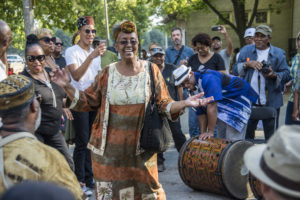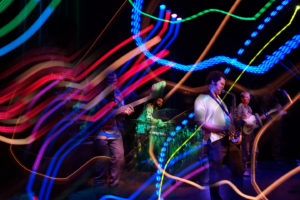The 41st annual Chicago Jazz Festival has come and gone, as I reported for DownBeat.com in quick turnaround. I stand by my lead that the music was epic — cf. Marc PoKempner‘s beautiful image of the Art Ensemble of Chicago at Pritzker Pavillion, facing east towards Mecca just before their African percussion-driven orchestral set. And […]
Jazz community upends Englewood’s bad rep
The 18th annual free Englewood Jazz Festival in south side Hamilton Park last Saturday (9/16) affirmed the best of Chicago’s grassroots culture, promoting an opposite image of this challenged neighborhood as a dangerous place — unless one fears powerful, creative music that speaks as directly as dance rhythms to its family of listeners. Produced on behalf of the Live […]
Great new jazz photography #2: Lauren Deutsch’s Made in Chicago portfolio
“Made in Chicago” is true of the photography of Lauren Deutsch, and also the name of the four-day-long collaborative jazz festival she’s organized in Poznan, Poland for the past 12 years as artistic director (formerly with Wojceich Juszcsak) on behalf of the Jazz Institute of Chicago. The theme of this year’s fest was “Freedom.” The photos here […]


